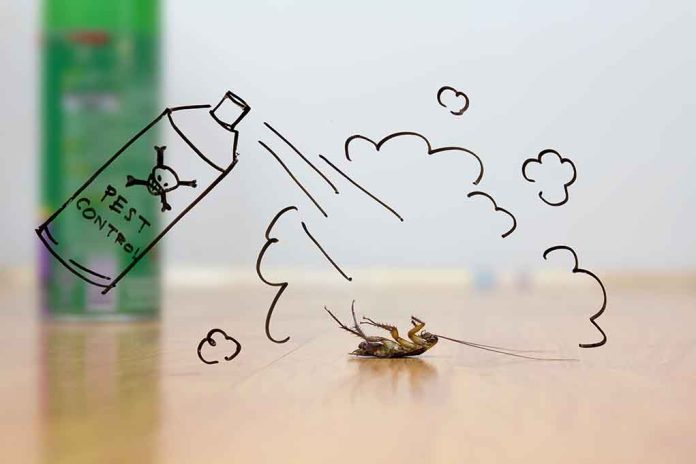(HealthyExaminer.com) – Pests are called that for a reason. No one enjoys dealing with them in the home or garden, but you may have concerns about using chemical pest control. Your concern could be for your own health, for your family, for your pets, or even for the health of the environment. If you’re looking for natural pest control options, you’ve come to the right place.
Skip the chemical-laden pest control sprays and try a natural, safe, and eco-friendly alternative. Here are 12 natural pest control options to consider for your home and garden this season.
12 Natural Pest Control Options for Your Home and Garden
Neem Oil
Oil extracted from the neem tree has proven to be a powerful natural insecticide. Not only is it biodegradable and non-toxic to people and pets, it is also safe for the environment and other wildlife. Neem oil targets insects that could be considered pests in your home or garden. You’ll simply dilute the neem oil with water (1 teaspoon of neem oil to 1 liter of warm water), and in some cases soap, before spraying it directly on your plants. This food-safe treatment can help you maintain an organic pest-free garden.
Diatomaceous Earth
This sedimentary rock actually comes from fossilized algae. It can be used as a pesticide both inside and outside your home. You simply dust the ground around the problem area, and it will dehydrate the pests that come in contact with it. It’s safe, however, for household pets and for human members of your family. Because it is in powder form, it does need to be reapplied after rain.
Rosemary
While rosemary might seem more like a recipe ingredient than a pesticide, planting this herb is a good way to naturally deter flies and mosquitoes. The strong scent of rosemary is an effective pest repellent. You can keep rosemary potted indoors or out or plant it around your garden to enjoy its many benefits.
Chives
Chives are another herb with natural pesticide properties. They act as a deterrent against aphids, flies, and beetles. These can also be planted in pots or grown outdoors.
Mint
The sweet smell of mint may attract humans–but it bugs the bugs. Mosquitos in particular are repelled by the mint. Mint can be grown in a container or planted in your garden. Take caution, however. Mint spreads quickly. Unless you want it spreading all over your lawn and garden, you may need to keep it planted in a container or be prepared to cut it back. Luckily, it can be used to make tea or as an ingredient in other recipes when it’s not keeping mosquitos away.
Basil
Basil isn’t just delicious. It’s a natural insecticide, too. Flies and mosquitoes aren’t fans of the smell of basil. Grow it indoors or out, and enjoy the benefits of this naturally bug-repellent herb.
Lavender
You might be surprised to learn that lavender belongs to the mint family. Like mint, lavender can be useful to keep bugs at bay. It works particularly well with moths, flies, fleas, and mosquitos.
Citronella
Citronella candles and other products are one of the most popular mosquito repellents, but did you know that you can plant tall citronella grass as another way of keeping mosquitoes away? Citronella grass planted near a window could even deter other flying bugs from attempting to come inside. The strong-smelling grass could encourage a mosquito-free zone around your home and garden.
Lemongrass
Lemongrass is often mistaken for citronella grass and has many similarities. Likewise, it can be used for pest prevention and control purposes. Lemongrass tolerates heat and can grow tall. You can plant it in containers or put it in your garden, and it will naturally discourage mosquitoes.
Petunias
Some pest prevention and control options are also decorative. Consider planting petunias in your vegetable garden to discourage aphids, beetles, tomato bugs, and squash worms. Be warned, however. Petunias can attract slugs and caterpillars. To best fight pests, you can grow petunias in a hanging basket near your vegetables to keep garden pests away but prevent creepy crawlies from making their home in your petunias.
Marigolds
Marigolds aren’t just garden showstoppers. They also repel lice, mosquitoes, and aphids. They even discourage rabbits from nibbling on your delicious garden. They grow well in flower beds or containers and make a beautiful and pest-resistant addition to any garden.
Chrysanthemums
Mums don’t just repel pests. They can kill them, too. Chrysanthemums can be deadly for ticks, lice, fleas, mites, beetles, ants, and roaches. They can be kept in planters or grown in your garden as effective pest control.
Other Precautions
While these natural pest control options can cut down on bothersome pests while being safe for your family and the environment, it’s important to remember that you can take other basic precautions to protect your home. You can seal up cracks in your walls, put weatherstripping on doors, fix torn screens, and plug openings to make sure that outdoor pests don’t come in.
Keeping a tidy home is another way to discourage pests from settling in your home. Regularly taking care of dishes, wiping up spills, and keeping garbage cans free of food residue can help keep pests from seeing opportunities to move in with you.
Natural pest control options exist. Some may kill the insects while many will simply discourage them from hanging around. Whichever option you choose, know that a natural pest solution could help your health while protecting your home, garden, and family.
Copyright 2023, HealthyExaminer.com












